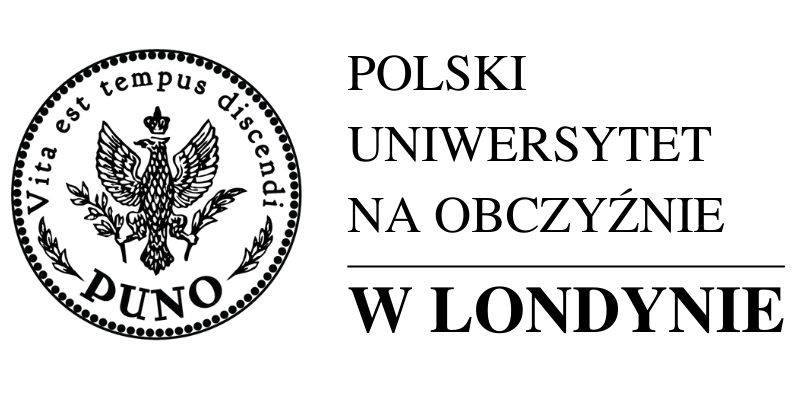Profesor Mikołaj Kunicki
Doktor nauk historycznych (specjalizacja historia Europy w XX wieku), filmoznawca i medioznawca. Adiunkt w Instytucie Dziennikarstwa i Komunikacji Społecznej na Uniwersytecie Wrocławskim.
W swoich badaniach zajmuje się historią najnowszą i historią filmu Polski i Europy Środkowo-Wschodniej, ze szczególnym uwzględnieniem nacjonalizmu, komunizmu, faszyzmu i katolicyzmu. Badacz roli kultury popularnej w legitymizacji reżimów autorytarnych i polityce historycznej. Autor monografii, artykułów i rozdziałów z zakresu historii i filmoznawstwa.
Absolwent Uniwersytetu Stanforda, Szkoły Studiów Slawistycznych i Wschodnioeuropejskich w Londynie, Uniwersytetu Europy Środkowej w Budapeszcie i Uniwersytetu Warszawskiego. Wykładał historię najnowszą Polski oraz Europy na uniwersytetach w Berkeley, Notre Dame i Oksfordzie. W latach 2013-2016 Dyrektor Programu Studiów o Współczesnej Polsce w St Antony’s College w Oksfordzie. Stypendysta Imre Kertész Kolleg w Jenie, Niemieckiego Instytutu Historycznego w Warszawie i Instytutu Nauk o Człowieku w Wiedniu.
Wybrane publikacje
Monografie:
Between the Brown and the Red: Nationalism, Catholicism, and Communism in 20th-Century Poland – The Politics of Bolesław Piasecki (Athens, Ohio: Ohio University Press, 2012).
Artykuły i rozdziały w pracach zbiorowych z ostatnich 10 lat:
- Lustration and the Roman Catholic Church in Poland, (w:) Church, Memory and Justice in Post-Communism, (red.) L. Turcescu, L. Stan, Cham 2021, s. 21-44.
- Medical Doctors Rule the City: Roman Załuski’s Zaraza / Epidemic and the 1963 Smallpox Outbreak in Wrocław, “Apparatus. Film, Media and Digital Cultures of Central and Eastern Europe”, 12 (2021), open access.
- A Socialist 007: East European Spy Dramas in the Early James Bond Era, (w:) The Cultural Life of James Bond: Specters of 007, (red.) J. Verheul, Amsterdam 2020, s. 41-60, open access.
- Imperfect Metropolis: The Evolving Projections of Wrocław in Polish Feature Films, (w:) Lviv and Wrocław, Cities in Parallel? Myth, Memory and Migration, 1890 – present, (red.) J. Fellerer, R. Pyrah, Budapest 2020, s. 41-60.
- Cultural Opposition and Filmmaking in Communist East-Central Europe: Lessons from Poland and Former Yugoslavia, (w:) The Handbook of COURAGE: Cultural Opposition and Its Heritage in Eastern Europe, (red.) B. Apor, P. Apor, S. Horvath, Budapest 2018, s. 267-288. Współautorzy: N. Daković, D. Leppla.
- Cultural Opposition Goes Abroad: The Collections of Diaspora Communities, (w:) The Handbook of COURAGE: Cultural Opposition and Its Heritage in Eastern Europe, (red.) B. Apor, P. Apor, S. Horvath, Budapest 2018, s. 473-492. Współautorzy: B. Apor, T. Vagramenko.
- “Optimism against All Odds”: Polish National Identity in War Films of Jerzy Passendorfer, “Sprawy Narodowościowe”, 49 (2017), open access.
- Poland’s Wild West and East: Polish Westerns of the 1960s, (w:) Popular Cinemas in Central Europe: Film Cultures and Histories, (red.) D. Ostrowska, Z. Varga, F. Pitassio, London 2017, s. 157-172.
- A Church-State Conflict: Jerzy Kawalerowicz’s Mother Joan of Angels and Cinematic Projections of Catholicism in Gomułka’s Poland, “Iluminace. Journal of Film Theory, History, and Aesthetics”, 28 (2016), s. 5-23.
- Pionere, Siedler und Revolverhelden: Die ‘Rückgewinnung’ der Westgebite im Polnischen Spielfilm der 1960er-Jahre, (w:) Der lange Weg nach Hause: Konstruktionen von Heimat im europäischen Spielfilm, (red.) D. Müller, L. Karl, K. Seibert, Berlin 2014, s.190-210.
- Heroism, Raison d’état, and National Communism: Red Nationalism in the Cinema of People’s Poland, “Contemporary European History” 21 (2012), s. 235-256.
Dr Wojciech Rappak – zastępca kierownika zakładu
Studia na University of Alberta, Univerity of Warsaw, Sorbonne and University of London. Doktorat z King’s College London, badania nad pojęciem ‘formy logicznej’ we wczesnej filozofii Wittgenstein’a. Studia historyczne na SSEES, University of London; Doktorat z UCL na temat wojennych raportów Jana Karskiego.
Praca badawcza: przekaz informacji o Zagładzie z Polski na Zachód w okresie wojennym. Historyczna analizy wojennej działalności Jana Karskiego. Badanie różnicy pomiędzy historycznym opisem i powieścią historyczną.
Wybrane publikacje: Holocaust Rescue Revisitied: An Unexplored Angle; Israel Journal of Foreign Affairs, 2014. Karski meets Zygielbojm, in Zygielbojm, PUNO Press 2018. ‘“Raport Karskiego” – kontrowersje i interpretacje’, Zagłada Żydów, Studia i Materiały, Vol 10., 2014, Review of Zimmerman on the Polish Underground and the Jews 1939-1945, The Notion of Form in Wittgenstein’s Tractatus, PhD dissertation, King’s College London, 1981; New York Times 25 November 1942, [To be published], Karski meets Roosevelt, [To be published].
Profesor Michael Fleming
Research: Professor Fleming’s currently research explores the development of a regime of international justice during and after the Second World War, with particular focus on the work of the United Nations War Crimes Commission.
Selected Publications:
In the Shadow of the Holocaust: Poland, the United Nations War Crimes Commission and the Search for Justice, (Cambridge University Press, Cambridge, 2022) www.cambridge.org/9781009098984
Auschwitz, the Allies and Censorship of the Holocaust, (Cambridge University Press, Cambridge, 2014/2021).
www.cambridge.org/9781107633667
Communism, Nationalism and Ethnicity in Poland 1944-1950 (Routledge, London, 2010)
https://www.routledge.com/9780415625005
